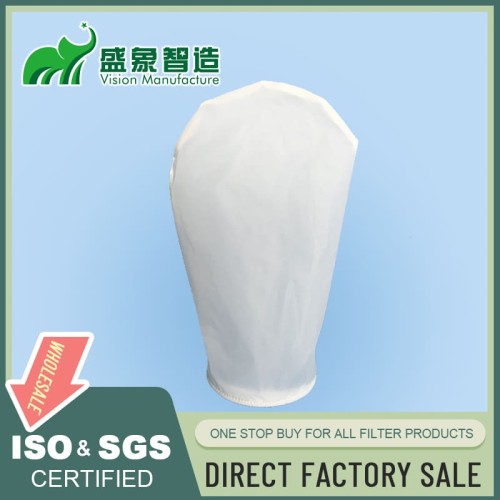
25 Micron Mesh: Precision Filtration for Industrial and Laboratory Applications
I. Introduction
In both industrial and research settings, fine filtration is crucial for maintaining the purity and quality of products and samples. This section introduces the 25 micron mesh technology, emphasizing its importance in various applications and industries where precision is paramount.
II. Understanding 25 Micron Mesh
- Definition and Scale Perspective: Explains the significance of the 25 micron rating, which refers to the mesh's ability to filter particles as small as 25 micrometers in diameter.
- Mesh Count and Micron Rating Correlation: Discusses how the number of threads or strands per inch affects the size of the openings and thus the filtration capability.
- Filtration Efficiency at 25 Microns: Evaluates how effectively this mesh size can remove contaminants from various media.
III. Materials Used in 25 Micron Mesh
- Stainless Steel: Known for its durability and resistance to corrosion, making it ideal for harsh environments.
- Nylon: Offers flexibility and excellent chemical resistance, suitable for a variety of liquid and gaseous substances.
- Polyester: Provides a cost-effective solution with good resistance to chemicals and physical stress.
- Other Specialty Materials: Includes materials designed for specific applications that require unique properties.
IV. Manufacturing Processes
- Weaving Techniques: Details on how 25 micron mesh is woven to achieve precise filtration.
- Precision Control in Production: Ensures consistent quality and performance of the mesh.
- Quality Assurance Measures: Critical steps taken to maintain the integrity and effectiveness of the mesh throughout manufacturing.
V. Applications Across Industries
25 micron mesh is versatile, used in numerous sectors due to its fine filtration capabilities:
- Pharmaceutical and Biotechnology: Essential for processes requiring high purity.
- Food and Beverage Processing: Used to ensure clarity and quality in consumables.
- Chemical Manufacturing: Filters out impurities that can affect chemical reactions and product quality.
- Water Treatment and Analysis: Critical in both drinking and wastewater treatment processes.
- Electronics and Semiconductor Production: Ensures the cleanliness required in sensitive manufacturing processes.
- Automotive and Aerospace Industries: Used in applications where precision and reliability are crucial.
VI. Key Features and Benefits
- High Precision Particle Retention: Ensures that only the smallest of unwanted particles are captured.
- Consistent Pore Size Distribution: Provides uniform filtration, crucial for process consistency.
- Chemical Resistance (Material-dependent): Allows use in environments with corrosive substances.
- Durability and Reusability: Offers a long service life with possibilities for multiple uses.
- Versatility in Application: Suitable for a wide range of industrial and laboratory applications.
VII. Design Considerations
- Mesh Opening Size and Tolerance: Ensures precise filtration according to specific application needs.
- Wire Diameter and Strength: Affects the overall durability and performance of the mesh.
- Overall Mesh Dimensions: Tailored to fit various filtration systems.
- Frame and Support Options: Enhances the structural integrity and ease of installation.
VIII. Performance Characteristics
- Flow Rate Capabilities: Handles high volumes efficiently without significant pressure drops.
- Pressure Drop Considerations: Minimizes resistance to maintain energy efficiency.
- Particle Capture Efficiency: High effectiveness in trapping targeted particulates.
- Cleaning and Regeneration Potential: Facilitates maintenance and extends the mesh's operational life.
IX. Installation and Usage
- Proper Handling Techniques: Essential to prevent damage during installation.
- Integration with Filtration Systems: Ensures optimal fit and function within the system.
- Tensioning and Securing Methods: Critical for maintaining mesh integrity during operation.
- Precautions for Delicate Applications: Special considerations for applications where mesh integrity is critical.
X. Maintenance and Cleaning
- Inspection Routines: Regular checks to ensure the mesh is functioning properly.
- Cleaning Methods (Ultrasonic, Backwashing, etc.): Effective techniques for maintaining mesh cleanliness.
- Chemical Compatibility in Cleaning Processes: Ensures that cleaning agents do not degrade the mesh material.
- Storage and Handling Between Uses: Proper practices to prolong the life of the mesh.
XI. Comparative Analysis
- 25 Micron Mesh vs. Other Filtration Methods: Evaluates the benefits of using 25 micron mesh over alternative filtration technologies.
- Advantages Over Membrane Filters: Discusses the superior durability and cost-effectiveness of mesh filters.
- Cost-effectiveness in Long-term Use: Assesses the economic impacts of using 25 micron mesh in various applications.
XII. Environmental and Sustainability Aspects
- Reusability and Waste Reduction: Highlights the environmental benefits of using reusable mesh filters.
- Energy Efficiency in Filtration Processes: Discusses how effective filtration can lead to energy savings.
- Recyclability of Mesh Materials: Focuses on the sustainability aspects of using recyclable materials.
- Eco-friendly Manufacturing Practices: Emphasizes the importance of environmentally friendly production methods.
XIII. Case Studies
- Enhancing Product Purity in Pharmaceutical Production: Demonstrates how 25 micron mesh has improved product quality.
- Improving Beverage Clarity in Food Processing: Shows the role of mesh in maintaining high standards in beverage production.
- Precision Filtration in Chemical Synthesis: Discusses complex filtration challenges where 25 micron mesh provided solutions.
- Contamination Control in Electronics Manufacturing: Highlights improvements in air filtration systems using 25 micron mesh.
XIV. Technological Advancements
- Nanofiber-enhanced Mesh Designs: Innovations that improve filtration efficiency.
- Smart Mesh with Integrated Sensors: The integration of technology to monitor and optimize filtration processes.
- Advanced Coatings for Improved Performance: Enhancements that improve the performance and lifespan of mesh filters.
- Hybrid Mesh Materials for Specialized Applications: Developments that combine 25 micron mesh with other materials for enhanced properties.
XV. Regulatory Compliance
- FDA Requirements for Food and Pharma Applications: Ensures that 25 micron mesh meets stringent health and safety standards.
- ISO Standards for Filtration Efficiency: Compliance with international standards to ensure consistent filtration quality.
- Industry-specific Certifications and Guidelines: Adherence to standards that govern specific industries and applications.
XVI. Conclusion
25 micron mesh is an essential component in modern industrial and laboratory filtration, offering numerous benefits across various applications. As filtration technology evolves, this mesh continues to play a crucial role in enhancing system performance and meeting environmental standards. For industries looking to optimize their filtration processes, 25 micron mesh offers a reliable and cost-effective solution.
Leave a comment

